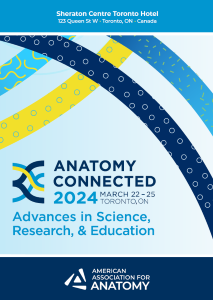Back
Neural Crest, Placodes and Craniofacial Development
Poster: Neural Crest, Placodes and Craniofacial Development
48 - The Impact of Capsaicin on Ethanol-induced Teratogenesis in Chicken Embryos
Monday, March 25, 2024
10:15am – 12:15pm US EDT
Location: Sheraton Hall
Poster Board Number: 48
There are separate poster presentation times for odd and even posters.
Odd poster #s – first hour
Even poster #s – second hour
Co-authors:
There are separate poster presentation times for odd and even posters.
Odd poster #s – first hour
Even poster #s – second hour
Co-authors:
Khush Shah - Undergraduate, Biology, Millersville University
- JC
Judith A. Cebra-Thomas, Ph.D.
Associate Professor
Millersville University
Millersville, Pennsylvania, United States
Presenting Author(s)
Abstract Body : Ethanol is a well-known teratogen which causes fetal alcohol syndrome (FAS). FAS usually manifests as craniofacial dysmorphology, with reductions in the frontonasal and maxillary prominences. These malformations have been attributed to excessive cell death in the regions. The craniofacial mesenchyme is derived from migrating Sox9+ neural crest cells. The patterning and growth of the mesenchyme is affected by signaling pathways activated by SHH, FGF8 and Wnts which are expressed in spatially restricted regions of the developing face. Ethanol exposure has also been shown to affect the expression of these signaling proteins. In a recent study, capsaicin was shown to ameliorate the visible effects of ethanol teratogenicity in cultured mouse embryos. We are investigating the potential for concurrent exposure of capsaicin to reduce the effects of ethanol exposure by measuring cell death, the migration of neural crest cells and the expression of key genes in control, ethanol-treated and ethanol+capsaicin-treated embryos through staining with vital dyes, immunofluorescence and in situ hybridization. This research will help elucidate the mechanisms behind a common environmental cause of congenital abnormalities in humans and investigate a potential way to mitigate its effects.

